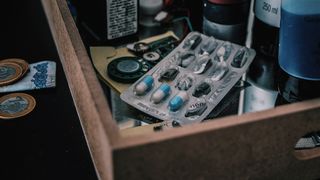Memory
The Impact of Addiction and Addictive Substances on Memory
When the high can cause a low.
Posted October 24, 2018

The headline reads “Marijuana Is Way More Dangerous to Teens than Alcohol, According to Study." The article on fatherly.com discusses a critical topic that comes to light often: The dangers of drug use are not as simple as an overdose, and we are still learning about them day by day.
According to the referenced study from the American Journal of Psychiatry, researchers found that cannabis use has a fairly significant impact on the short and long-term memory of teens.
While this would seem intuitive, as the “high” works by slowing down brain processes, the information provides another level of support for the clinical work I do with teens in rehab, namely: this can cause permanent damage. The “live for today” thing leads into “living in pain” tomorrow and as you age.
Interestingly enough, the memory issue is one that has become increasingly problematic even with older adults and the elderly with whom memory is already a known issue.
A recent study on alcohol and the elderly found that “excessive alcohol consumption may increase the risk of cognitive dysfunction and dementia.”

Opiates are also heavily prescribed for the elderly as a form of palliative care. Opiates work by inhibiting the transmission of pain signals and a person’s reaction to the pain. These same signals and signal paths are tied to cognitive processes, and so there can be long-term secondary damage to the brain and memory function.
It’s hard enough dealing with the impact of aging; adding substances to the mix drastically increases the chances of memory loss and other cognitive issues on top of the addiction potential.
For the elderly, unlike most teens, the critical issue that comes up when addressing the negative impact of substances on the mind and body is pain management.
How can we treat pain for the elderly in as non-damaging a way as possible? Here are several tips:

1. External, non-addictive pain management—from CBD oils, massage, acetaminophen, and physical therapy to acupuncture, radio waves, electric stimulation and more.
2. Psychotherapy. Psychotherapy is widely and effectively used to help people cope with chronic pain as well as addiction. Additionally, teletherapy services are available for treating unique populations such as the elderly, who may be bedridden.
3. Structured and supportive environments that meet the physical and emotional needs of elderly patients, with a focus on quality of life, enable them to:
A. Take the focus off of pain
B. Address the cognitive struggles associated with even the limited use of opiates.
C. Learn to utilize effective strategies with the support of a team.
4. Yoga, meditation, and other alternative interventions help people respond better to stress and gain and maintain flexibility, and increase blood flow to the brain and cognition. It also reduces the fear of falling by improving balance, and increases self-sufficiency.
References


